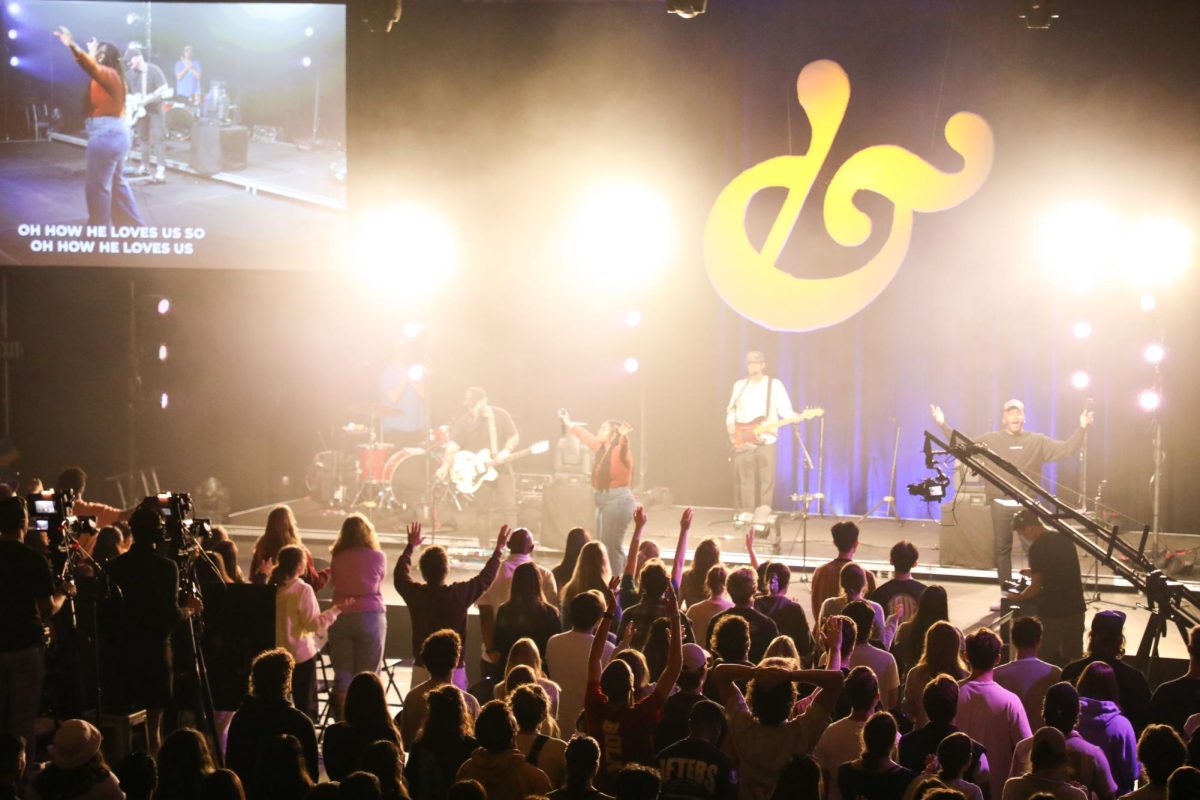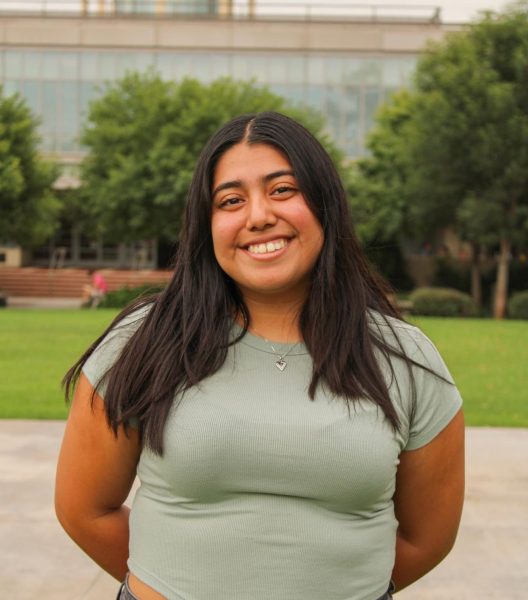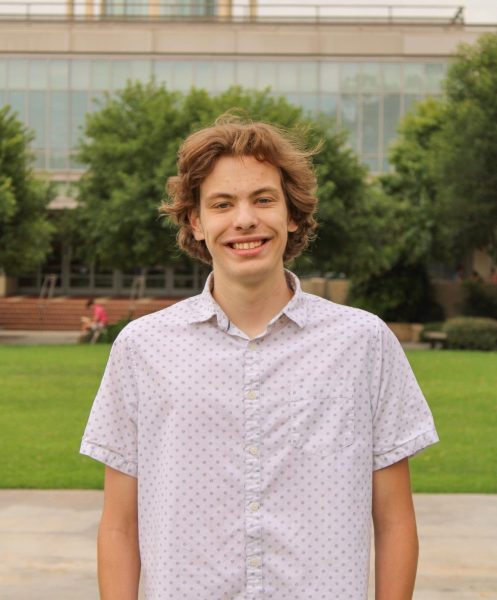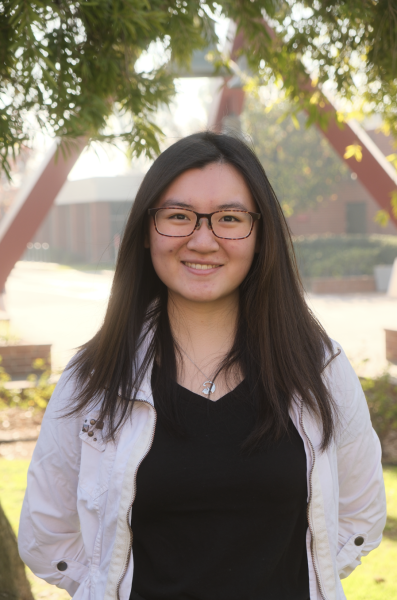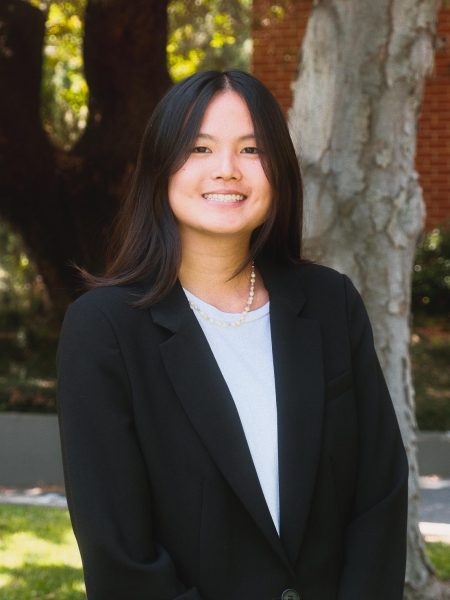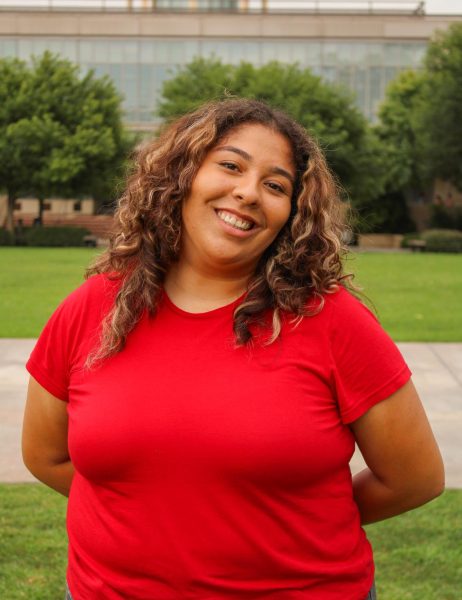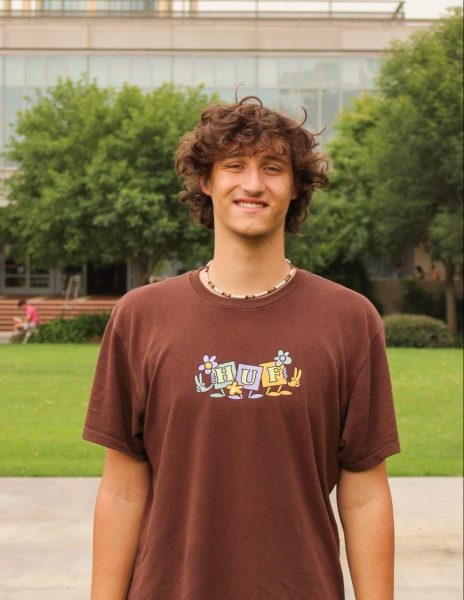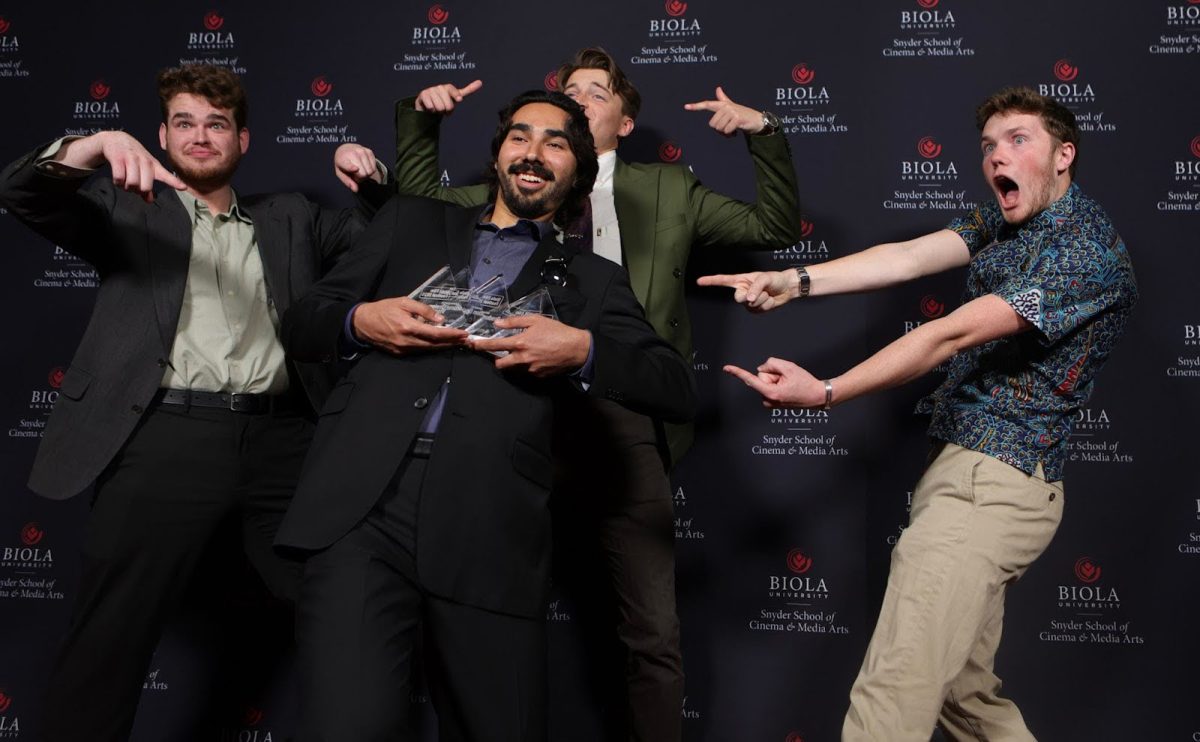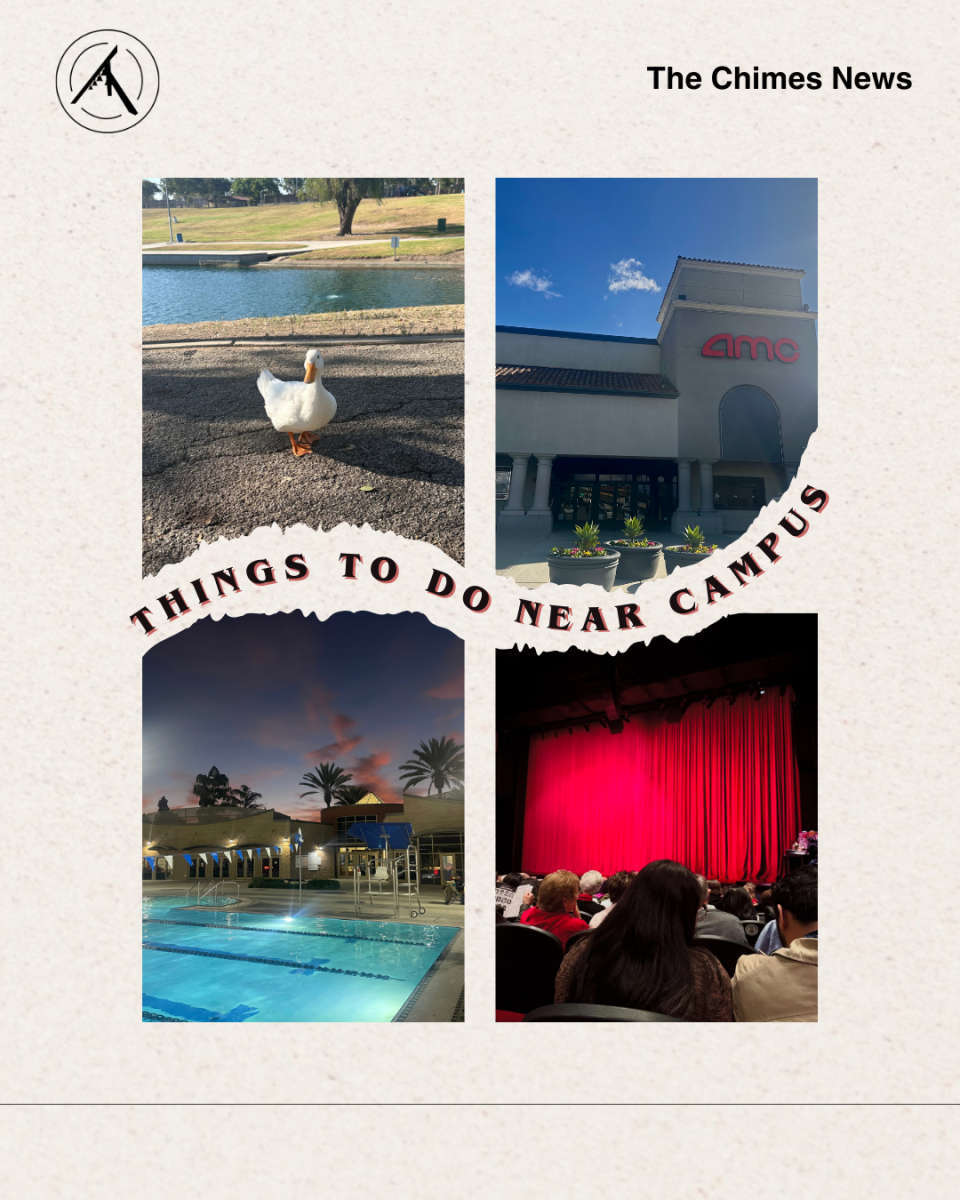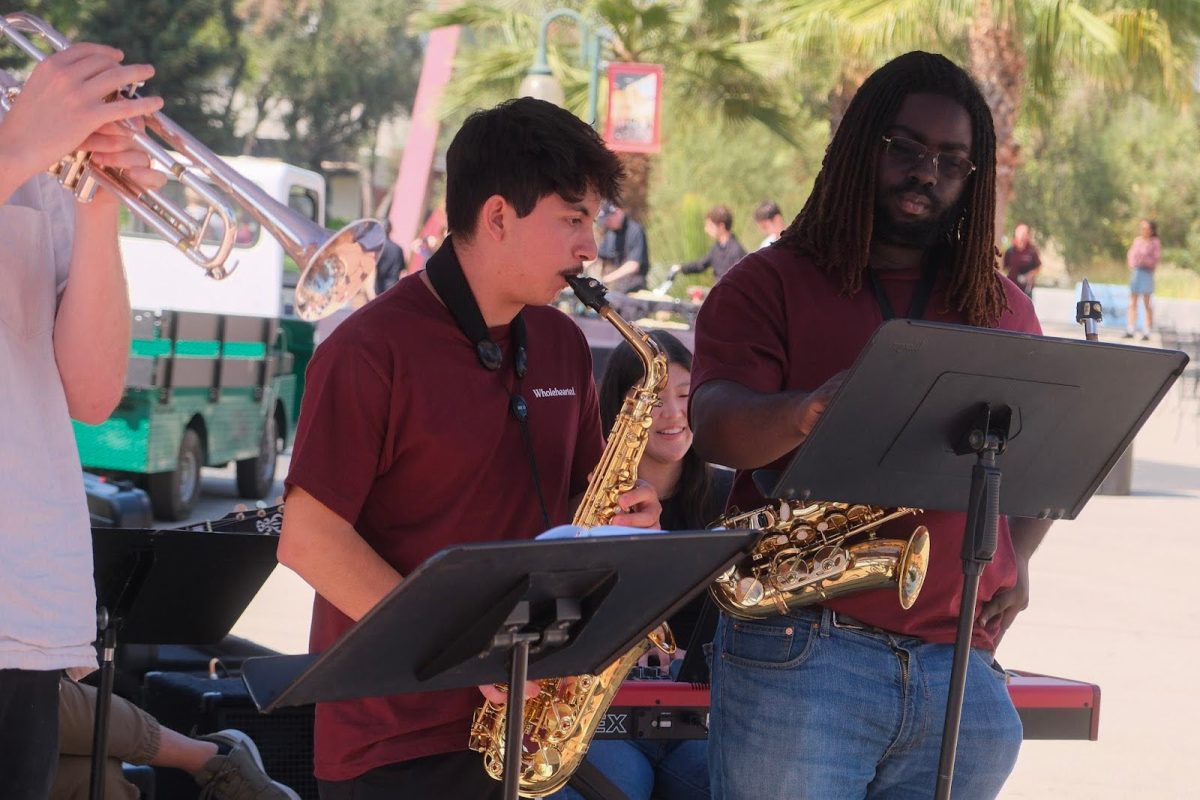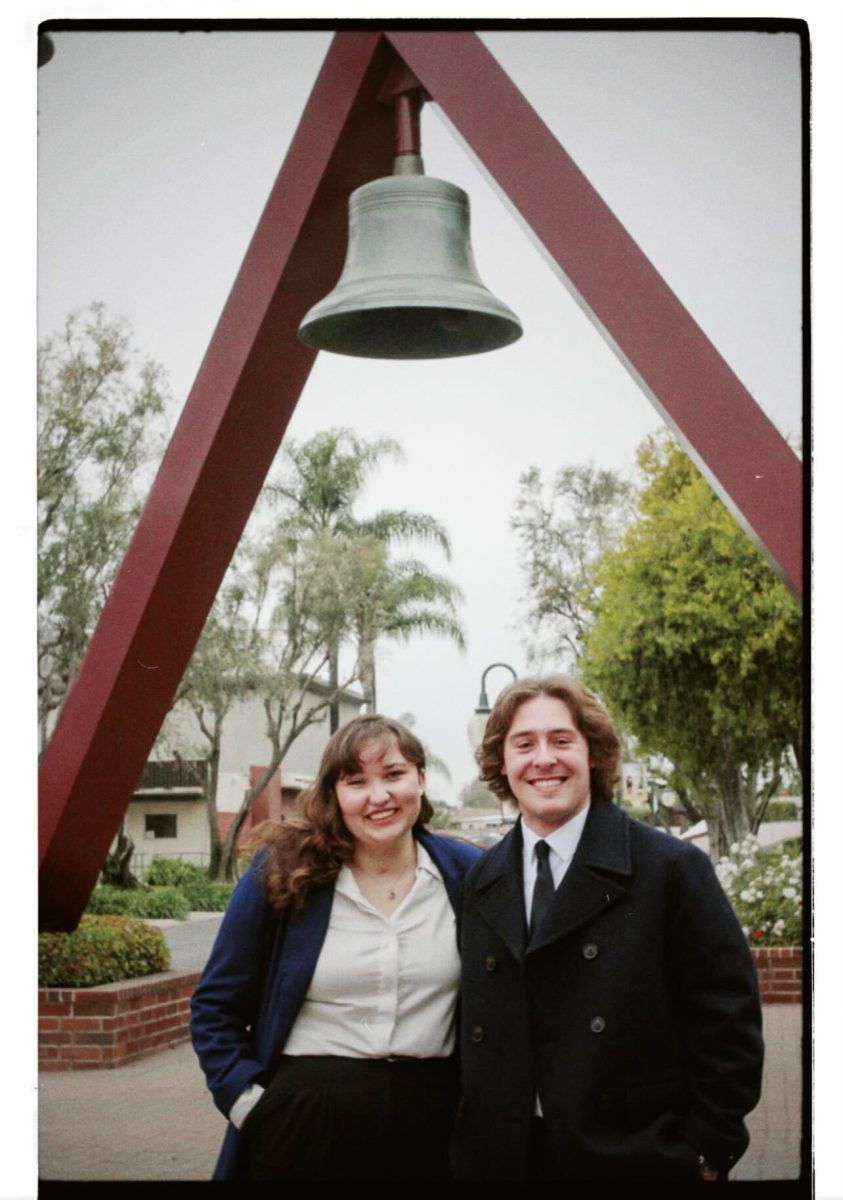DAY ONE, SESSION ONE
Chase gymnasium was filled with people as many gathered to learn and worship about grace and truth at Biola’s annual Torrey Conference. This year’s theme covered topics on race, sex and doubt centered around John 1:14.
The first session opened with worship by Davy Flowers and Trenton Bell with Worship Initiative. Soon after, speaker Isaac Adams began the session titled “Why is it so hard to talk about race?”
“Why is it so hard for Christians in America to talk about race,” he said early in his talk.
Throughout this talk, Adams addressed ‘The Bad Fruit’ which was what happens in the conversation of race. He went on to explain that ‘The Root,’ was the reason we struggle to have conversations around race.
Adams ended his talk by asking students to reflect on themselves and answer some questions about why it is so difficult to speak about race.
DAY ONE, SESSION TWO
Rachel Joy Welcher gave her message called “Purity is Not Salvation but Chastity Can be Worship” on the first night of Torrey Conference. She wrote a book titled Talking Back to Purity Culture: Rediscovering Faithful Christian Sexuality. As someone who grew up during the rise of the purity movement, known as sexual abstinence until marriage, in the 90s, Welcher placed much of her effort as the best way to be a good Christian. She then shared that when her husband divorced her after five years of marriage, she was left with many questions about what she had been taught.
The first point she made for her talk was that “purity is not salvation.” The purity culture mindset equates purity to salvation which is similar to that of the prosperity gospel, in that it says that if one simply tries to follow the rules, they are rewarded. However, Welcher preached that this movement ignored the fact that sexual purity does not stop at the altar. Even in marriage, there will still be struggles with lust and other sexual sins. She argued that treating the terms ‘virgin’ and ‘purity’ synonymously means that when people sin or are put through sexual abuse, they can feel permanently defeated. As words of encouragement, Welcher reminded students that figuratively “revirginizing” is not the answer, but that Jesus is.
Another part she found unhelpful about purity culture was how it guaranteed marriage as a reward for those who are faithful with their virginity. This philosophy excludes single people and treats them as less obedient to God. She mentioned how treating sexual abstinence as the ultimate goal brings some shame. She explained that in all our shortcomings, and even in waiting for marriage, the goal should be surrendering to Christ. When pursuing purity, the goal should always be to glorify God and not seek a reward.
The second part of Welcher’s message was that “chastity can be worship.” She explained that sex is not a right or a need of the Christian, but it is often treated as such. She continued to say that marriage is not one’s chance to be sexually selfish, but about love, unity and mutual sacrifice. In chastity, through singleness or in marriage, the end goal of our sexuality is to imperfectly worship our perfect Savior until He comes again.
DAY TWO, SESSION THREE
Chase Gymnasium quickly flooded with students on Thursday morning, anticipation filling the atmosphere. Sean McDowell, professor of Christian Apologetics at Biola’s Talbot School of Theology and co-host of the podcast “Think Biblically,” led the conference’s third session, “Deconstructing What You Believe Without Sinking Your Faith.”
Though McDowell was unable to lead the session in person, he and his son pre-recorded a video on his YouTube channel for students to watch. The video explored ten common questions students ask about feelings of doubt or struggles with faith throughout the Christian walk, such as “Is it okay to have doubts?” and “What to do when you’re experiencing doubt?”
“Doubt is not the opposite of faith. Unbelief is the opposite,” McDowell said in the video. “The question isn’t about if [doubt] is good or bad, it’s how do we deal with it?”
McDowell asserted how important it is to have someone to confide in when having doubts. He also emphasized that having absolute perfect faith in God, given humanity’s current state, is impossible. However, God has given his people grace.
“You can never give [God] one hundred percent of your faith—it’s impossible in our current state,” said McDowell. “Give as much as you can, and ask God for grace. Ask God to help increase your faith.”
DAY TWO, SESSION FOUR
Tim Blycker, a missionary particularly in Mexico, was one of the many speakers at Torrey Conference this year. His session was titled “Walk Thru the Bible – Old Testament” and was held on Thursday afternoon. Blycker was raised in Guatemala where his parents were missionaries and now works alongside the organization Walk Thru the Bible as the Hispanic Director.
Before the start of his session, students were given booklets that outlined the Old Testament. The purpose of this particular session was for Blycker to lead students through the Old Testament in an interactive way. Blycker shared that he studied at the Moody Bible Institute but still felt weak in the area of understanding the Old Testament. The entirety of the session was a summary of this portion of the Bible guided by Blycker who engaged the audience with an extensive amount of hand motions to help memorize the order of events and characters in the Old Testament.
He placed heavy emphasis on having a heart for unbelievers and missions throughout the entirety of the conference lecture.
In regards to having friends or family who do not know God, Blycker said, “Get them to know God better. That is a great goal of your life.”
DAY TWO, SESSION FIVE
Session five of the Torrey Conference was “#sTorrey Slam” and the extended worship. According to the Torrey Conference website, this is a time to “hear personal stories of Grace & Truth from the Biola community followed by original musical compositions by Sam Vance.”
The stories read had personal experiences on topics like racism, desertion, restoration and feelings of belonging. With the room almost full, many students clapped at the sounds of Sam Vance and his musical compositions that followed every speaker. The speakers who shared their stories were Mike Ahn, Carla Logie, Noelle DeLaCruz, Renda Pettit and many more.
Once the stories were read, the Worship Initiative guided everyone in singing praise to God. They asked the Torrey Conference student leaders to come up to the stage. One by one each student leader prayed for the conference and everyone in the room.

